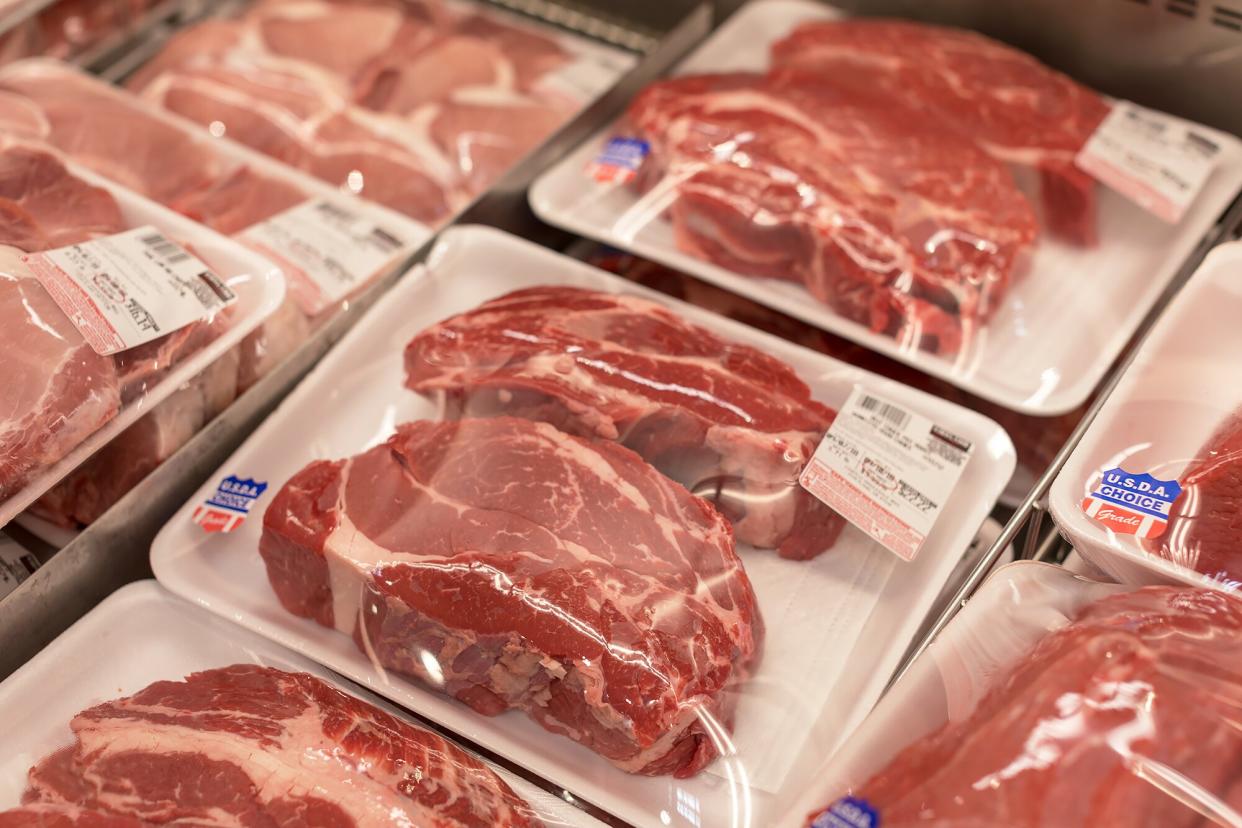Beef Labeled 'Product of USA' May Actually Come from Other Countries — Do American Shoppers Know That?

- Oops!Something went wrong.Please try again later.
- Oops!Something went wrong.Please try again later.
Shutterstock
On the website for Farm Aid, the annual concert hosted by Willie Nelson, Neil Young, and John Mellencamp, there's a Take Action tab, that sends the site's visitors to a page encouraging them to "support family farmers in your daily life and add your voice to the chorus of people making change all over the country."
One of the ways that the farmer-focused organization is trying to enact change is by supporting the The American Beef Labeling Act, which would prevent beef from being labeled as a "Product of the USA" unless it came from cows that were born, raised, and processed in the United States. "Have you ever noticed 'Product of the USA' on the label of beef in the grocery store?" a post on the Farm Aid site asks. "Would it surprise you to learn that the animal it came from may have been raised and processed in Brazil or New Zealand?"
That's true: as The Counter explains, the U.S. Department of Agriculture (USDA) currently allows beef and pork products to be labeled "Product of the USA" or "Made in the USA" as long as it was processed in the U.S. But, as the USDA's current guidelines state, "the 'Product of USA' labeling claim may be applied to meat products derived from animals that have been imported from a foreign country but slaughtered in the United States, as well as to meat products that have been imported from a foreign country and repackaged [...] in the United States."
That hasn't always been the case: in 2015, Congress partially repealed the Country of Origin Labeling (COOL) law. Following the repeal, beef and pork products no longer had to be marked with their country of origin. (Chicken and lamb products that originate in other countries must still be labeled as such.)
Last September, the bipartisan American Beef Labeling Act was introduced in the Senate and, if it passes, it would reinstate Mandatory Country of Origin Labeling (M-COOL) for beef. "Transparency in labeling benefits both producers and consumers," the bill's co-sponsor Sen. John Thune (R-SD) said. "Unfortunately, the current beef labeling system in this country allows imported beef that is neither born nor raised in the United States, but simply finished here, to be labeled as a product of the USA. This process is unfair to cattle producers and misleading for consumers. When you see a 'product of the USA' label on the grocery store shelf, it should mean just that."
In addition, the USDA's Food Safety and Inspection Service (FSIS) is currently conducting an online survey to determine what U.S. consumers notice and understand about the agency's current allowances for "Product of USA" labeling, and the value that customers place on U.S.-raised beef and pork. "If there's a label on [...] a pound of ground beef that says Product of the USA, we want to make sure that consumers understand precisely what that means," Secretary of Agriculture Tom Vilsack said in January.

